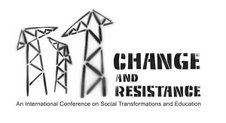The future profession as a continuous learning or a will to be mobile:
political scientists and psychologists transition from higher education to working life
Sofia Evertsson
Department of Behavioural Science
Linköping University
Today some would argue that we live in a society and economy of knowledge and globalization. This has implications for universities as well as for working life in terms of what knowledge that is produced and the employability and flexibility. It is reasonable to assume that this discourse of employability and flexibility also influences the students’ perceptions of studies and work. Therefore, this study focuses on senior students’ transition from higher education to working life in order to explore how these two communities of practice, with particular set of boundaries and traditions, influence graduates’ notion of their future profession. Research has up until now described the transition in rather general terms, e.g. the graduates’ employment, the graduates’ position in working life in a more quantitative and structural way. Therefore, there is still only limited knowledge about how graduates construe themselves as professionals and how they experience their future career.
The design of the empirical study is longitudinal, where graduates have been interviewed on three consecutive occasions: the last semester before graduation, the first and then the third year in working life. The graduates’ comes from two different Master’s programmes at Linköping University, Sweden; Political Science and Psychology. The specific aims are to: (i) explore graduates’ notion of their future profession and (ii), to what extent this notion changes in the transition from higher education to working life. The data analysis is inspired by a phenomenographic analysis with interest to explore the variations in conceptions of the phenomenon as well as the possible change over time.
The analysis yielded a set of descriptive categories; the future profession conceived as a continuous learning, to master a tool-box, to fulfil a commitment, to search for a professional field, to be mobile, and to have a long term commitment.
The results indicate at the first interview occasion that the senior students envisage a positive and a secure professional future, where knowledge mostly is seen as something technical and applicable. As first year and three year novices in working life they meet different demands and opportunities, such as demanding and/or challenging work tasks, reorganizations in the work place, unemployment, feeling of not being skilled enough which affect their professional identity as well as their notion of their future profession. They point to the future profession as a need for being changeable and mobile or something that needs continuous learning. This implies that the encounter with working life creates a need for an employability that, to some extent, is based in the values from the knowledge and global economy.
Subscribe to:
Post Comments (Atom)

No comments:
Post a Comment